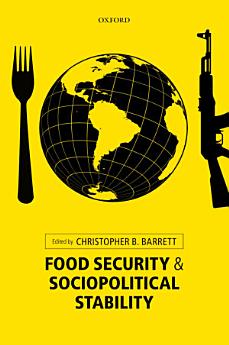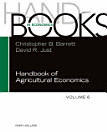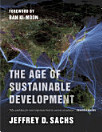Food Security and Sociopolitical Stability
Christopher B. Barrett
Sep 2013 · OUP Oxford
Ebook
512
Pages
family_home
Eligible
info
reportRatings and reviews aren’t verified Learn More
About this ebook
Global food price spikes in 2008 and again in 2011 coincided with a surge of political unrest in low- and middle-income countries. Angry consumers took to the streets in scores of nations. In some places, food riots turned violent, pressuring governments and in a few cases contributed to their overthrow. Foreign investors sparked a new global land rush, adding a different set of pressures. With scientists cautioning that the world has entered a new era of steadily rising food prices, perhaps aggravated by climate change, the specter of widespread food insecurity and sociopolitical instability weighs on policymakers worldwide. In the past few years, governments and philanthropic foundations began redoubling efforts to resuscitate agricultural research and technology transfer, as well as to accelerate the modernization of food value chains to deliver high quality food inexpensively, faster, and in greater volumes to urban consumers. But will these efforts suffice? This volume explores the complex relationship between food security and sociopolitical stability up to roughly 2025. Organized around a series of original essays by leading global technical experts, a key message of this volume is that actions taken in an effort to address food security stressors may have consequences for food security, stability, or both that ultimately matter far more than the direct impacts of biophysical drivers such as climate or land or water scarcity. The means by which governments, firms, and private philanthropies tackle the food security challenge of the coming decade will fundamentally shape the relationship between food security and sociopolitical stability.
About the author
Chris Barrett is the Stephen B. and Janice G. Ashley Professor of Applied Economics and Management and International Professor of Agriculture in the Charles H. Dyson School of Applied Economics and Management as well as Professor in the Department of Economics at Cornell University where he also serves as the Director of the Cornell Institute for International Food, Agriculture and Development's initiative on Stimulating Agricultural and Rural Transformation. He holds degrees from Princeton (A.B., History, 1984), Oxford (M.S., Development Economics, 1985) and the University of Wisconsin-Madison (dual Ph.D., Economics and Agricultural Economics, 1994). He has published several books and more than 250 journal articles or book chapters. He served as editor of the American Journal of Agricultural Economics 2003-2008, and is an associate editor or editorial board member of the African Journal of Agricultural and Resource Economics and the Egerton (Kenya) Journal of Humanities.
Rate this ebook
Tell us what you think.
Reading information
Smartphones and tablets
Install the Google Play Books app for Android and iPad/iPhone. It syncs automatically with your account and allows you to read online or offline wherever you are.
Laptops and computers
You can listen to audiobooks purchased on Google Play using your computer's web browser.
eReaders and other devices
To read on e-ink devices like Kobo eReaders, you'll need to download a file and transfer it to your device. Follow the detailed Help Center instructions to transfer the files to supported eReaders.







